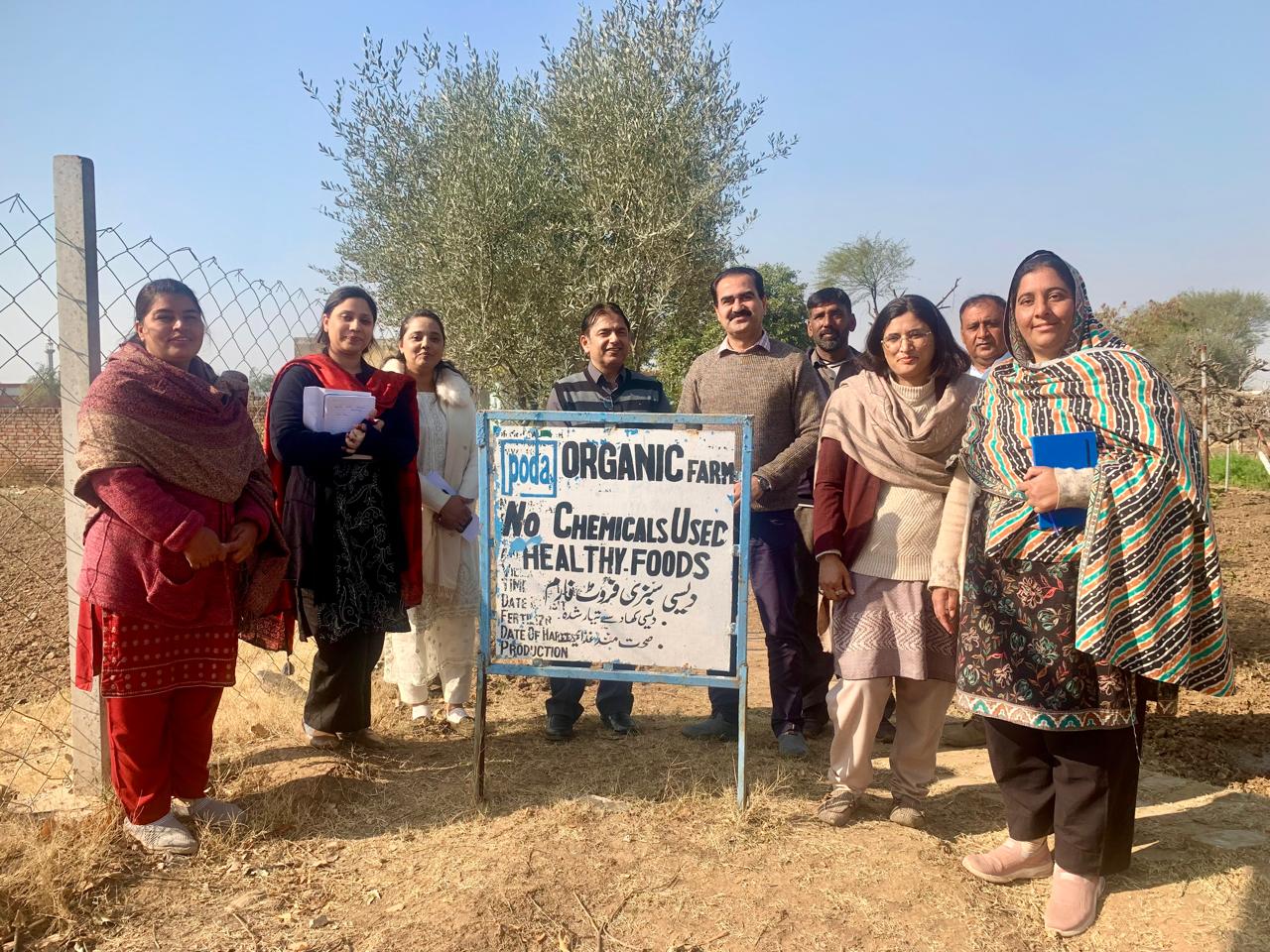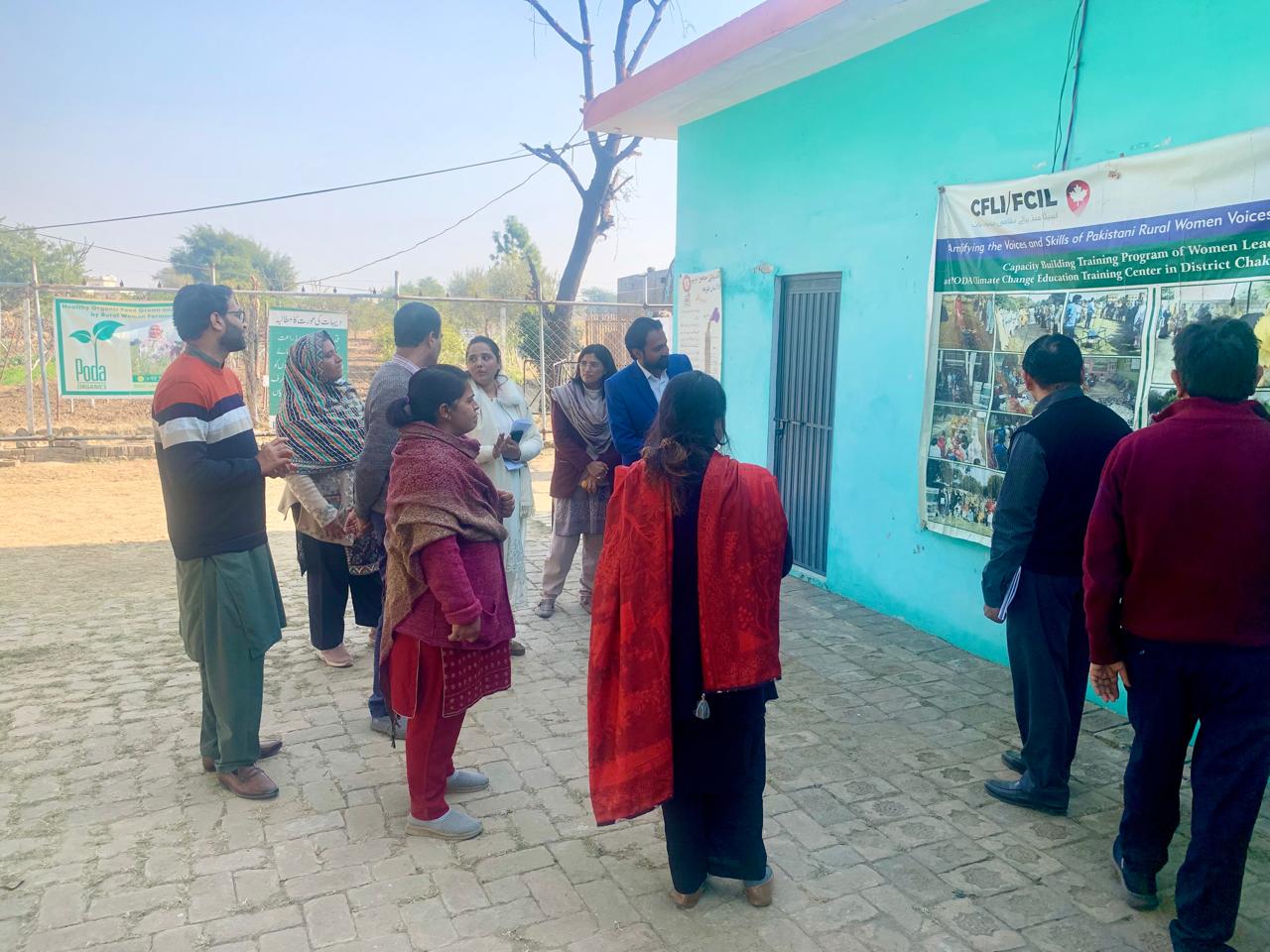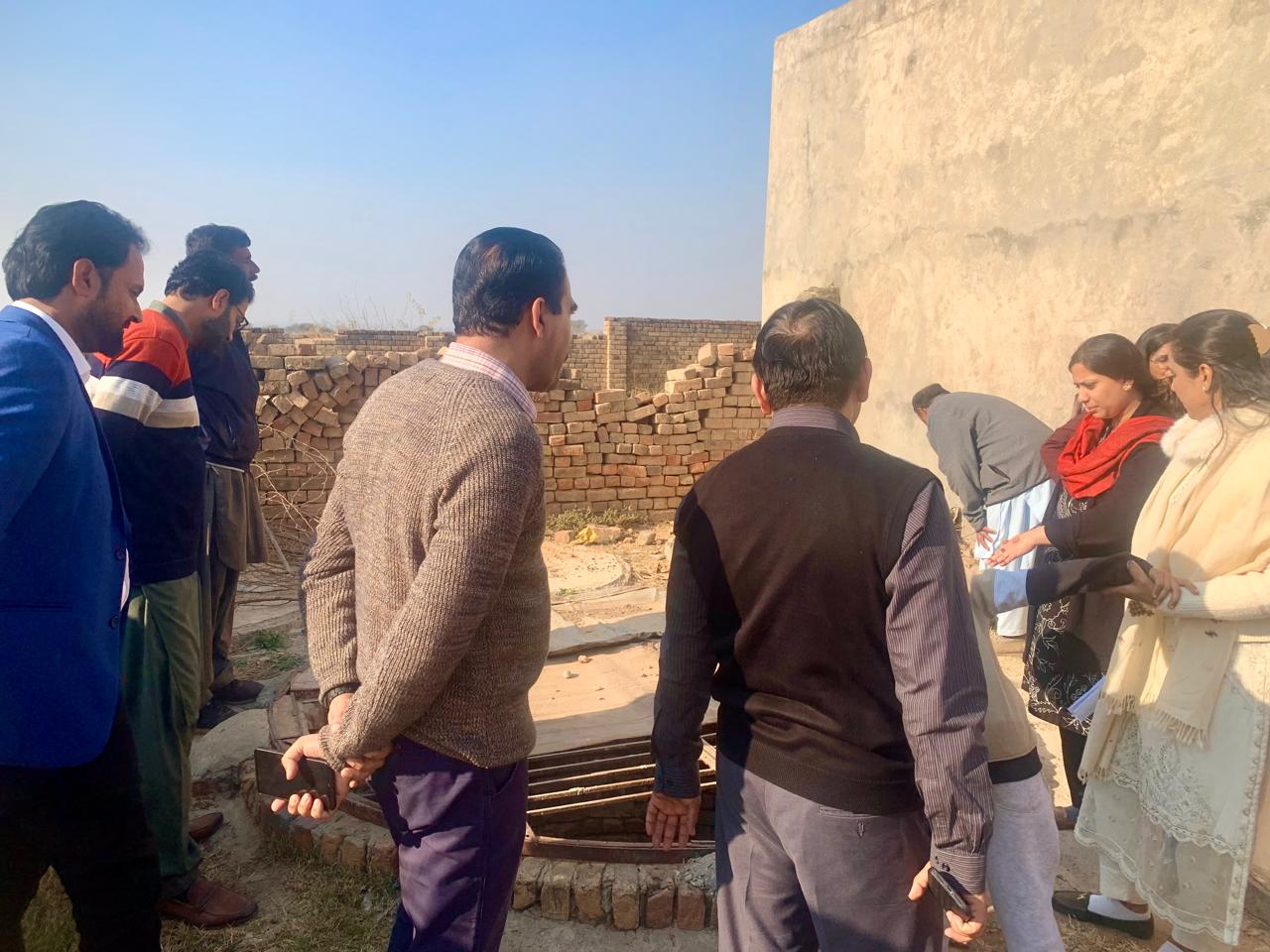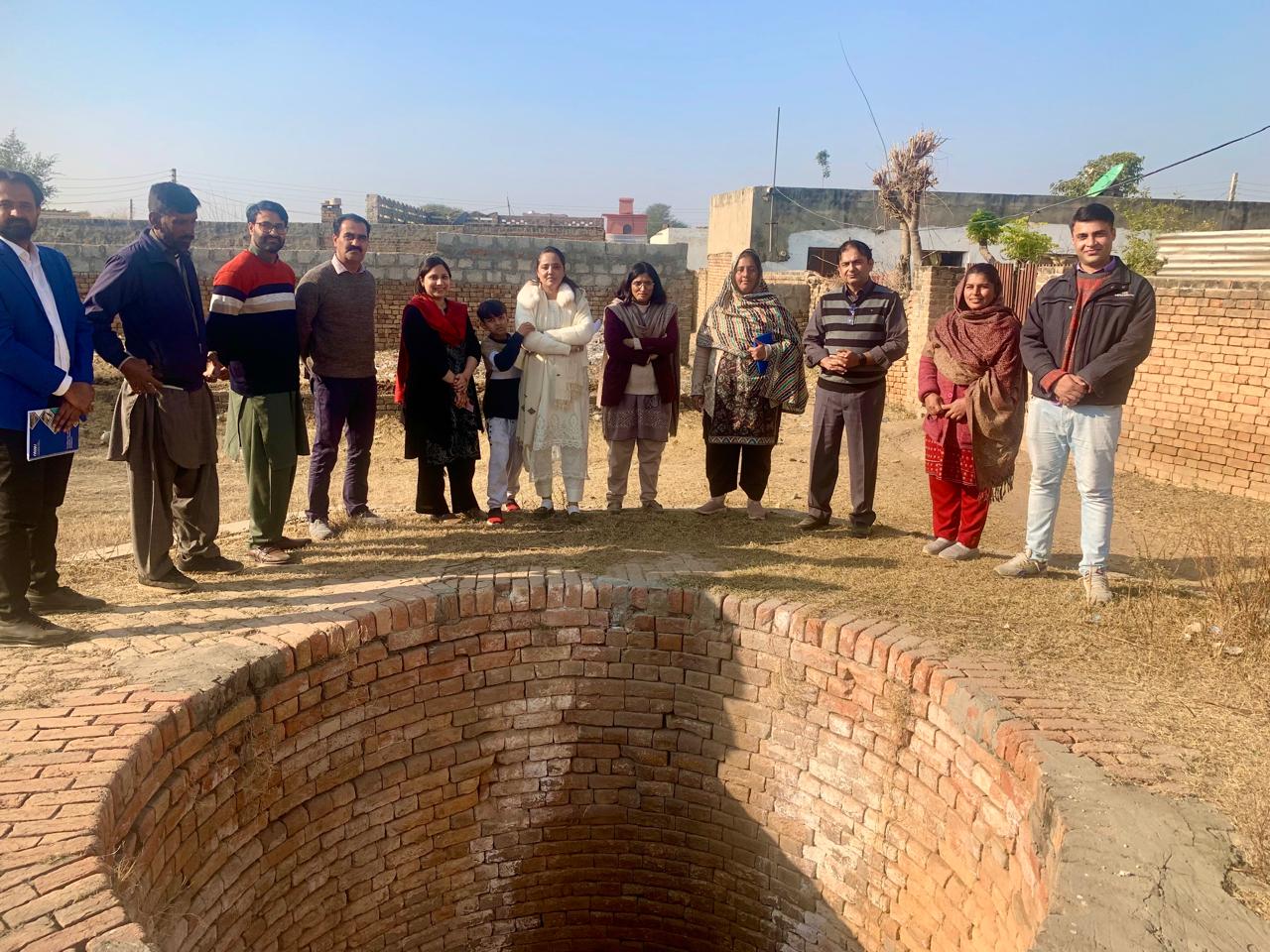
On 15th January 2025, IWMI Lahore team from the International Water Management Institute (IWMI) visited PODA Sustainable Agriculture and Climate Change Education Farm in Chakwal. The visit was led by Dr. Jehanzeb Cheema, Deputy Country Representative, IWMI, along with his team, including:
* Ms. Kanwal Waqar, Deputy Country Representative & Regional Researcher – Gender and Social Inclusion, IWMI
* Mr. Amjad Jamal, Communications Specialist, IWMI
* Dr. Zohaib, Remote Sensing and GIS Specialist, IWMI
IWMI is currently working on the WRAP project in Pakistan, which is supported by UKaid. The Water Resource Accountability in Pakistan (WRAP) program aims to address water challenges by improving water resource management at federal, provincial, and district levels. The program focuses on establishing reliable water accounts, supporting water policy implementation, and promoting gender equity in water management. It also includes workshops to assess water accounting mechanisms and enhance capacity, with a goal to strengthen water governance through climate-resilient solutions and generate evidence for national policies on climate and water.
The purpose of this visit was to evaluate how the work done by PODA in Chakwal can be integrated with the IWMI WRAP project. The PODA team first provided a brief introduction to their projects in the Chakwal region. They explained the history of climate change education and sustainable agriculture at the farm, and how PODA began working with women farmers and youth in the Potohar region. The team shared the various projects implemented to overcome climate change and low agricultural productivity in the area. They also highlighted how PODA has transformed traditional farming practices in the community, focusing on environmental-friendly projects and skill development training programs.
The team also provided a detailed overview of the water issues faced in the region due to climate change and the drilling of wells by ODCL. They briefed the visitors on the challenges of water depletion, deteriorating water quality, and the impact on agriculture and daily life in the area. Several sites were shown where ponds and wells have been dry for many years due to these issues, and the community is struggling to access water for both daily use and farming.
Small rainwater harvesting models were also demonstrated as a short-term solution to address water scarcity. The IWMI team took detailed notes on these water crises and discussed the impacts of water depletion, water quality, and health issues caused by the use of poor-quality water.
The WRAP project focuses on identifying “hotspots” where water issues are critical, monitoring drought spells, and recommending interventions from relevant departments to resolve these issues. The IWMI team expressed interest in considering the sites identified by PODA as potential hotspots for the WRAP project in Chakwal. The WRAP project also includes capacity-building activities for farmers, which will support them in measuring and planning their field activities. This includes the installation of piezometers and EC meters to monitor soil water levels and determine irrigation needs, which is a key strategy for managing drought. In the long term, the WRAP project could also support the construction of recharge ponds and wells through field studies in the region.
Overall, the visit was a successful first step in establishing collaboration between PODA and IWMI to address water-related issues in Chakwal, particularly for women farmers and the community. IWMI representatives indicated that an MOU with PODA would likely be signed to work together on addressing the water crises in the area.




